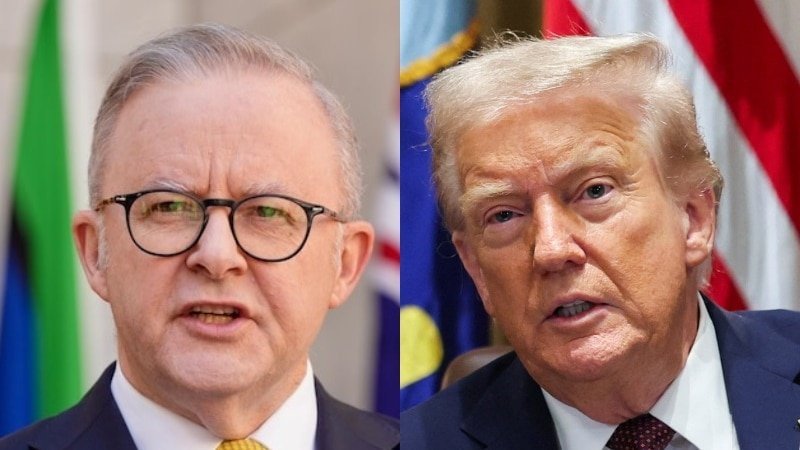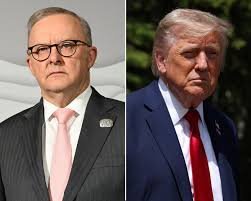Albanese and Trump Hold ‘Warm and Constructive’ Talks Amid Fears of Fractured US-Australia Relationship
- Prime Minister Anthony Albanese has finally spoken with US President Donald Trump after months of pressure to secure a face-to-face meeting
- The leaders discussed trade, critical minerals, and shared security interests in a call that Albanese described as “warm and constructive”
- The conversation comes as the US reviews the AUKUS security pact with Australia and the UK, sparking concerns about the future of the alliance
Prime Minister Anthony Albanese has revealed that he has had a “warm and constructive” conversation with US President Donald Trump, finally breaking the silence on a topic that has been plaguing him for months.
In a late-night social media post, Albanese confirmed that the pair spoke about trade, critical minerals, and shared security interests, but refused to elaborate on the details of their conversation.
The call comes amid growing concerns about the state of the US-Australia relationship, with Trump’s administration placing tariffs on Australian products and launching a review of the AUKUS security pact.
Albanese has been under sustained pressure to secure a face-to-face meeting with Trump, with critics arguing that he needs to do more to build a personal relationship with the mercurial US President.

The Prime Minister had planned to meet with Trump on the sidelines of the G7 summit in Canada earlier this year, but the meeting was cancelled when Trump returned to the US early amid hostilities between Israel and Iran.
Instead, Albanese has spoken to Trump four times since the US election in November, but is yet to meet him in person. He is expected to travel to New York to attend a UN General Assembly summit later this month, but no meeting with Trump has been announced.
The Trump administration’s review of the AUKUS pact has raised concerns about the future of the alliance, with the US saying it wants to ensure the pact aligns with Trump’s “America First” agenda.
Australia has been eager to negotiate exemptions to US tariffs on imports, which include a 10 per cent “baseline” tariff on most Australian products, and a 50 per cent tariff on aluminium and steel.
The Australian government views access to the country’s critical mineral deposits as part of a possible tariff-exemption deal with the US, but it has so far been unable to secure any such deal.
“Great to have the president and the prime minister in another call this morning,” said Australia’s ambassador in Washington, Kevin Rudd, in a social media post.
Rudd has been promoting the prospect of Australia becoming a key supplier of critical minerals to the US, which is currently heavily reliant on China.

